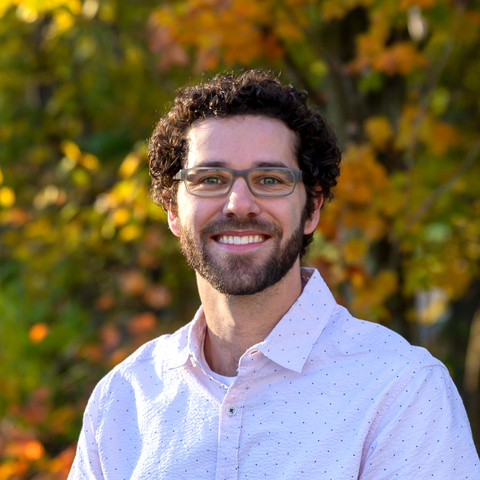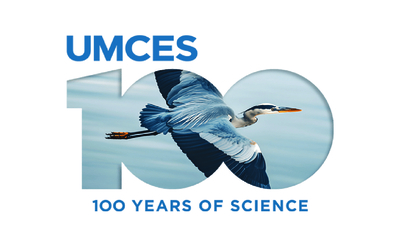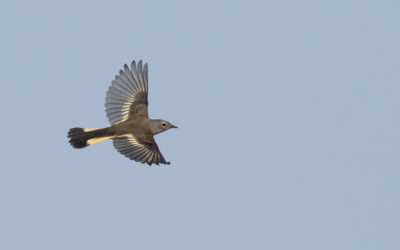
Dr. Rodney Richardson, a molecular ecologist studying honey bees and other insect pollinators, has joined the faculty of the Appalachian Laboratory of the University of Maryland Center for Environmental Science (UMCES) as an Assistant Professor.
While growing up on his father’s farm in central Indiana, Richardson became fascinated with honey bees after watching a neighbor catch a stray swarm. Richardson ordered his first honey bees for the following spring while still in middle school and had them shipped to his grandfather’s house, since his mother and stepmother were still a little wary of his beekeeping plans. From then, he was hooked on beekeeping and learning all he could about honey bees.
“Stings aside, working a honey bee colony is fascinating, and I became particularly interested in looking at what’s in the pollen they’re bringing back to the hive,” Richardson said, explaining how this childhood hobby led to his eventual career path.
Richardson’s research currently focuses on analyzing the pollen honey bees collect to learn what plants are present and used by honey bees as well as other native bees, including solitary and bumble bee species. Scientists like Richardson can analyze DNA from the collected pollen to determine what plant species are present in the samples, allowing them to look more closely at how bee diets change across the landscape, how human activities influence bee diets, and how these diets affect bee health and nutrition.
So why is the health of bees and other pollinators a concern? In addition to being naturally charismatic and pollinating many of the plant species we enjoy seeing in parks and natural areas, pollinators are critical for our agricultural economies. In the U.S. alone, these species pollinate around $15 billion worth of crop products each year. From the flowers we enjoy in our gardens, to the food on our dinner plates, to the economic livelihoods of farming families, we all depend on healthy pollinator populations.
What’s more, scientists speculate that the richness of plant resources in a given area may influence competition between honey bees and other pollinators, such as native bees and butterflies. More resources likely means less potential for different pollinator species to compete against each other for those resources. Understanding more about the richness of resources in various locations can help inform the conservation of multiple pollinator species simultaneously and help ensure necessary levels of plant and crop pollination for the long term.
Richardson joins the Appalachian Laboratory at a challenging time. The COVID-19 pandemic has led to a variety of changes at UMCES, a member of the University System of Maryland. Classes have been held fully online this semester, and as of early December, university facilities are operating at 50% capacity, maximizing telework options for those employees who can work from home and prioritizing the safety and facility access for those who require laboratory space or other facility resources for their work. While faculty have continued to conduct research, they’ve needed to redesign plans to ensure compliance with social distancing and other updated safety protocols. For more information on how UMCES is responding to the COVID-19 pandemic, please visit www.umces.edu/coronavirus.
For now, while some analyses are starting to take place in the Molecular Ecology Lab, Richardson is mostly focusing on research plans for the future. He is currently recruiting a graduate student to join the lab for fall 2021 and hopes to pilot a new study locally in summer 2021 focused on competition between honey bees and other pollinators.
“I’m very excited to be part of the UMCES-Appalachian Laboratory,” Richardson said. “As a scientist, UMCES and the Lab offer a unique opportunity to collaborate with colleagues with a wide breadth of interests and expertise within the same institution, allowing me to deepen and broaden my own research.”
“Also, I grew up on a small farm and love the outdoors, so I really look forward to making western Maryland home,” he added.
Rodney Richardson holds a Bachelor’s of Science in Biochemistry from Indiana University and a Ph.D. in Entomology from Ohio State University. To learn more about his research visit www.umces.edu/rodney-richardson.




